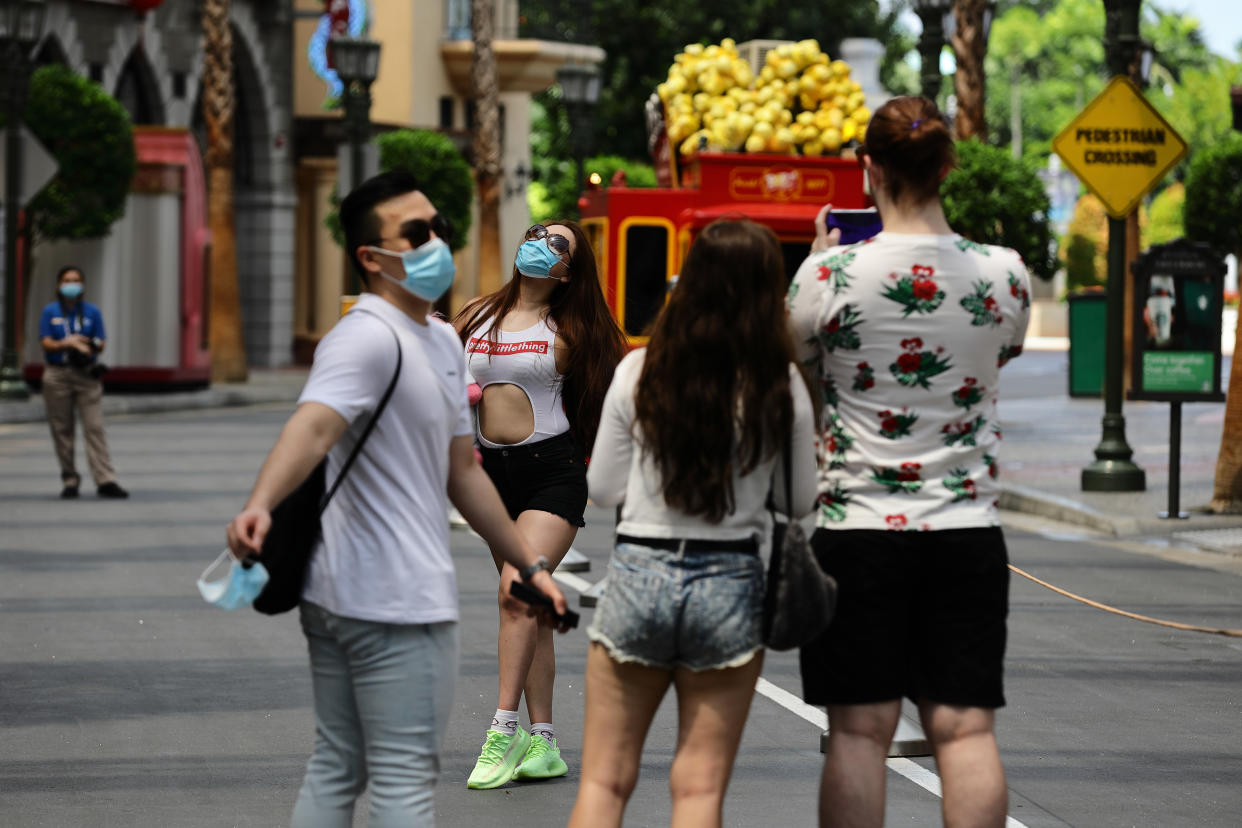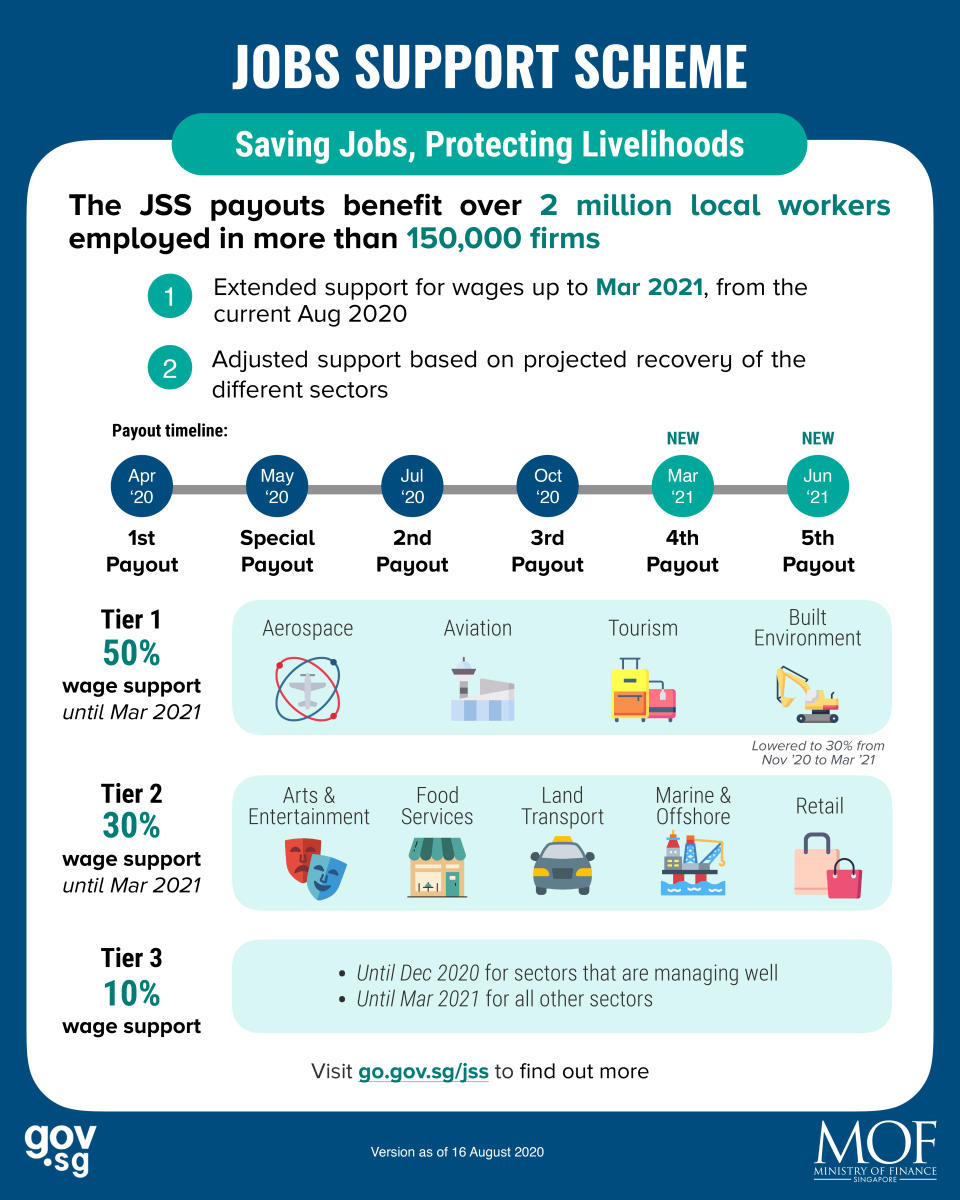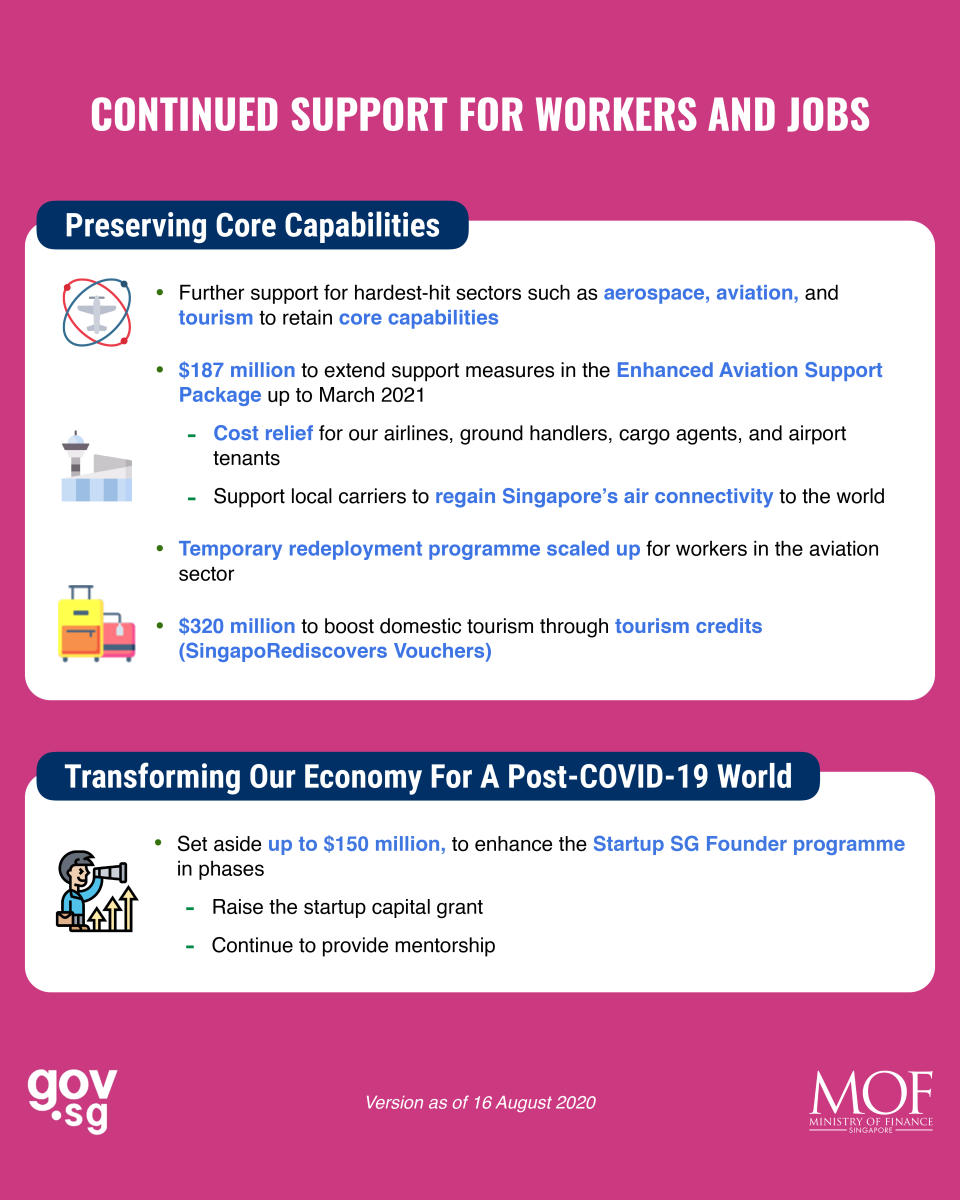Singapore adds $8bn to COVID-19 response, including $320m in credits to boost local tourism

SINGAPORE — The Singapore government on Monday (17 August) unveiled another $8 billion in financial support for workers and businesses as part of its response to the ongoing COVID-19 pandemic.
This amount includes $320 million in credits for citizens to encourage local tourism, a new $1 billion programme to create jobs in growing sectors and the extension of existing schemes aimed at mitigating the pandemic’s economic impact.
These measures were announced by Deputy Prime Minister Heng Swee Keat in a Ministerial Statement broadcast over local media channels. The funds also mark the fifth cash injection for the government’s financial year and takes the country’s total pandemic response expenses up to just over $100 billion.
The government has no plans to draw on past reserves to fund the latest measures, said Heng. “We intend to fund these measures by reallocating monies from other areas, such as development expenditures that were delayed due to COVID-19,” he said.
Heng had earlier unveiled the $6.4 billion Unity Budget in February, $48 billion Resilience Budget in March, $5.1 billion Solidarity Budget in early April and the $33 billion Fortitude Budget in late May.
While Singapore’s COVID-19 situation is “now under control”, Heng also noted that the global economy is projected to contract by 5 per cent this year and that Singapore recently experienced its worst-ever quarterly performance with a 13.2 per cent year-on-year contraction in the second quarter of this year.
He emphasised that for Singapore to survive the current crisis, it would have to do three things: continue to support jobs and create new ones; provide more support for the hardest hit economic sectors and position itself to seize new growth opportunities once the pandemic passes.
“What will the post-COVID-19 world look like? No one really knows. But it will not be business-as-usual,” he said.
Boosting local tourism
To aid the country’s ailing tourism industry, the government will be issuing SingapoRediscovers Vouchers to nudge citizens to rediscover their own country.
“Our foreign visitor arrivals have dried up because of the travel restrictions, but we are determined to support our tourism sector by encouraging local tourism,” said Heng.
“Local consumption will not fully make up for tourist spending, but I hope Singaporeans will take the opportunity to explore our local culture and heritage, nature, art, and architecture. You may be surprised by what you discover,” he added.
Heng said the Ministry of Trade and Industry would provide more details about the move in September.
An additional $187 million will also be pumped into the aviation sector as part of an extension of measures under the Enhanced Aviation Support Package.
“This will provide cost relief for our airlines, ground handlers, cargo agents, and airport tenants. This package will also support our local carriers to regain our air connectivity to the world,” said Heng.
Support for workers, firms
To encourage businesses to retain their workers, Heng announced an extension to the Jobs Support Scheme (JSS), which helps to subsidise wages. While the JSS currently covers workers’ wages up to this month, the scheme will be extended by up to seven months to cover wages paid up to March 2021.
Noting that the JSS cannot be sustained at current levels, Heng said that the levels of support would be adjusted based on the projected recovery of the various business sectors.
For instance, firms in the aviation, aerospace and tourism sectors – which he described as being the “hardest hit” – will receive 50 per cent wage support for seven months, while those in areas such as food and entertainment or retail will receive 30 per cent wage support for the same period.
Meanwhile, the COVID-19 Support Grant (CSG) will be extended to until December and will be open to both existing CSG recipients and new applicants. To qualify, unemployed applicants have to show evidence of their effort in searching for a job or obtaining training.
For low-wage workers, the eligibility criteria for the $3,000 Workfare Special Payment will be expanded to include those who were not on the Workfare Income Supplement scheme in 2019 but have received, or will be receiving, Workfare for work done this year. Currently, only those on Workfare for work done in 2019 are eligible.
Noting that that there are “bright spots” amid the economic gloom, Heng pointed to the biomedical sciences, financial services and information and communications technology (ICT) sectors as areas that are still looking for workers.
To encourage businesses in these sectors to hire more locals workers, a $1 billion Jobs Growth Incentive programme will be launched that will subsidise the salaries of new hires for a year.
Another $150 million will also be set aside to enhance the Startup SG Founder programme in phases, with the aim of boosting innovation and entrepreneurship. He added that the Ministry of Trade and Industry would be providing more details on the plans soon.



Stay in the know on-the-go: Join Yahoo Singapore's Telegram channel at http://t.me/YahooSingapore
Other Singapore stories:
COVID-19 Support Grant extended to Dec, $1 billion jobs growth programme to be launched: Heng
COVID-19: FairPrice at Hillion Mall, Newton Food Centre among places visited by community cases
Bukit Panjang Plaza, KTV joint added to list of places visited by COVID-19 cases



